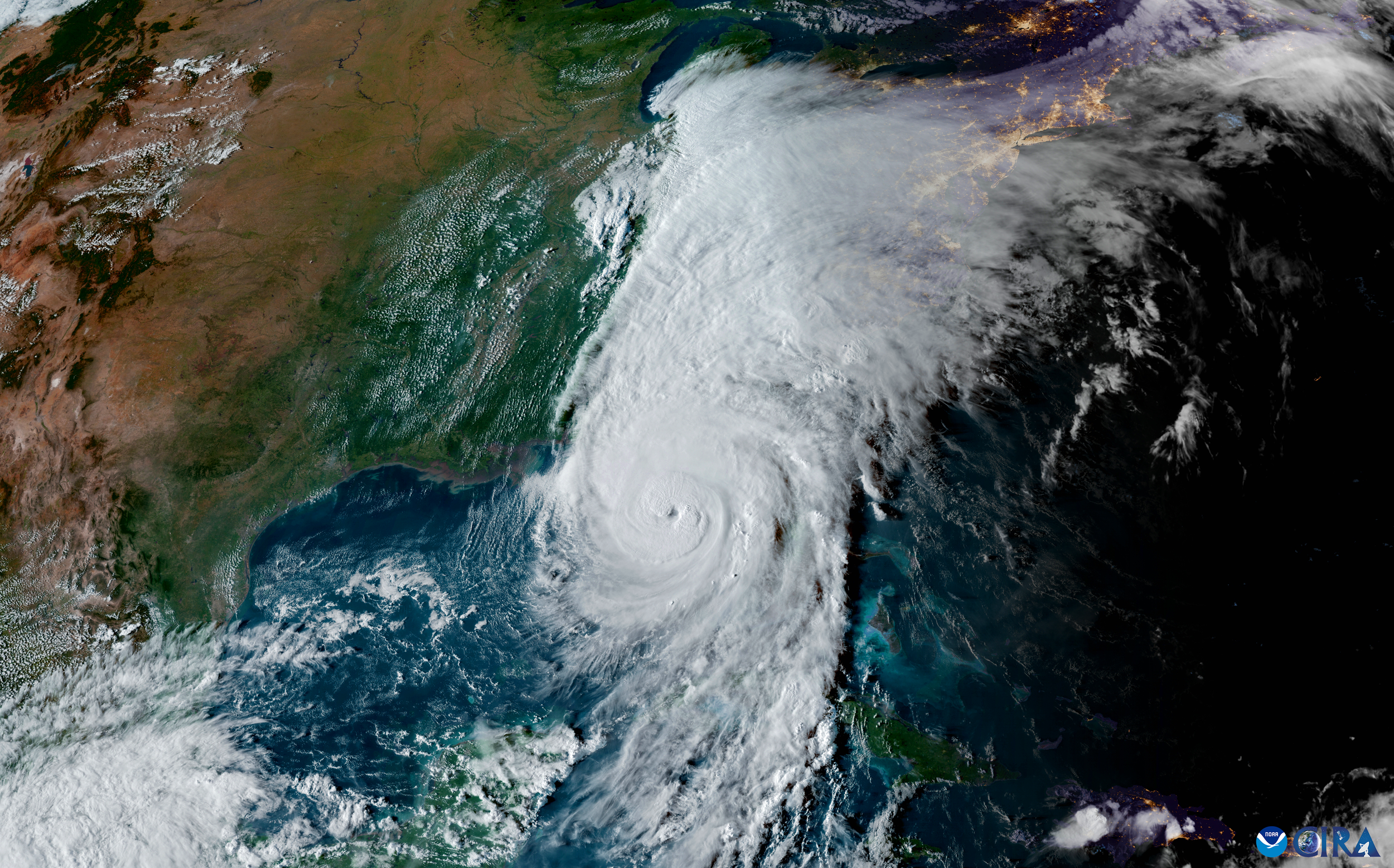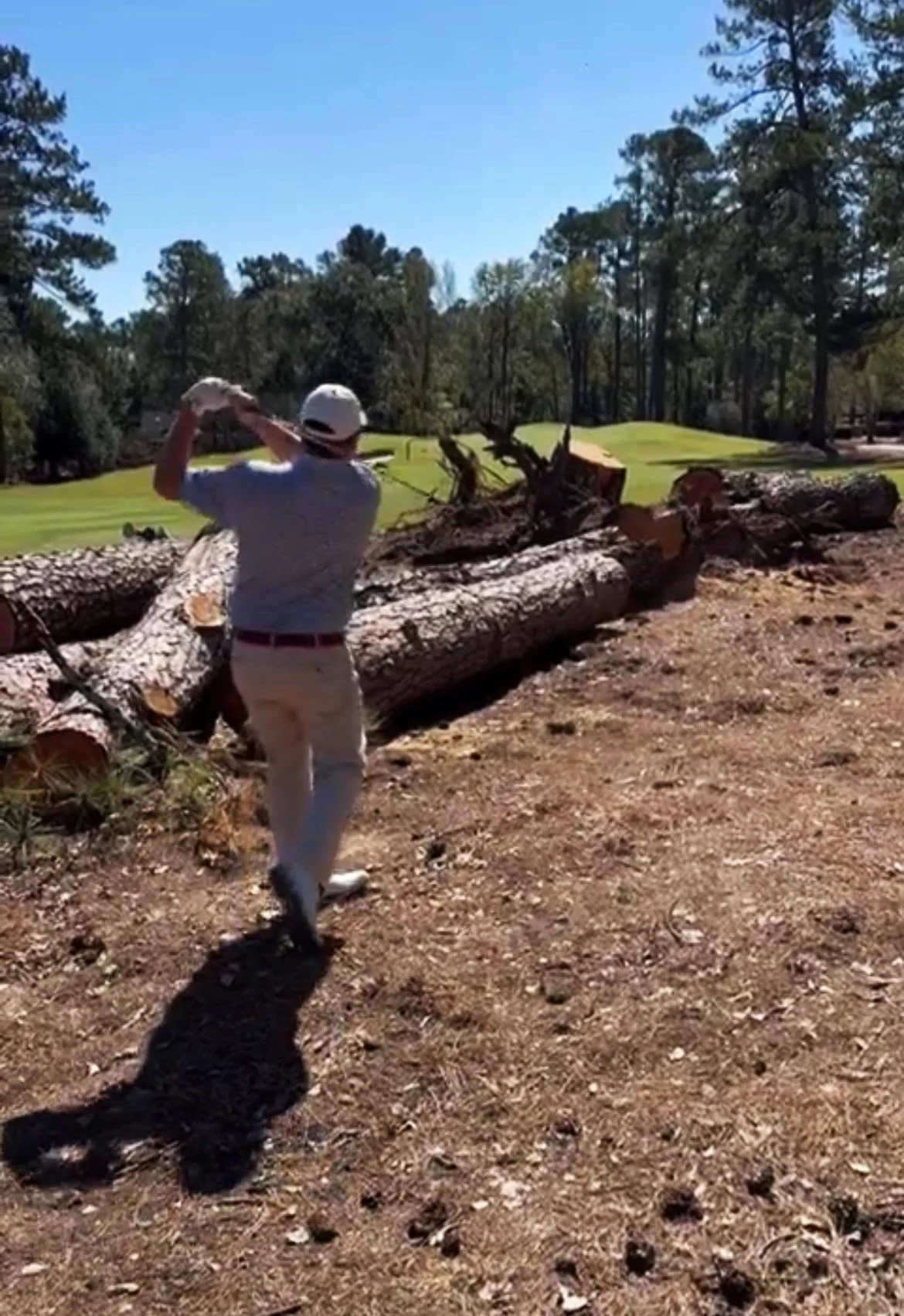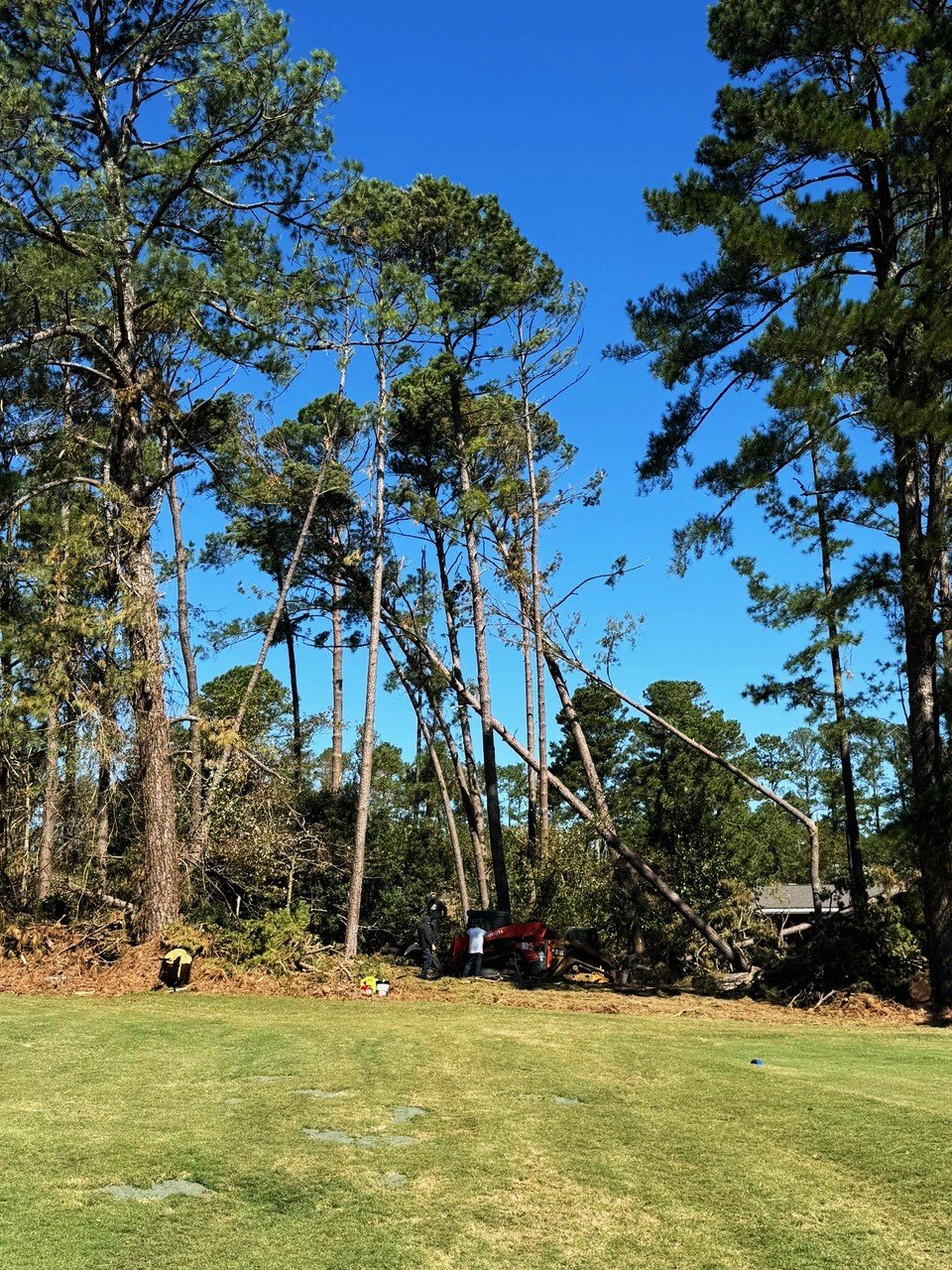Augusta GA Community Takes Huge Hit from Hurricane Helene
Time crunch to make the golf club whole again by April; the community will take longer
11th green complex was devastated
By Terry Moore
When the unthinkable happens to a community, it’s hard to imagine in its immediate aftermath when normalcy will ever return.
Indeed, the citizens of Augusta, GA — home to the Masters — harbored those dreadful feelings as they coped with the devastation caused by Hurricane Helene. The Category 4 hurricane tore through the metro area on September 27, causing deaths and personal injuries, massive property loss and damage, and outage of major utilities and services. In its cruel wake, The Augusta Chronicle and other media ably reported the sobering reality of:
More than 31 deaths in the region, many from fallen trees on homes and vehicles
More than 220,000 people without power
A county-wide water outage was followed by the city issuing a ‘boil water’ advisory saying it's unsafe to drink.
County-wide curfews from 7 am to 7 pm
Closing of all area schools
Most area businesses closed
Severe shortages of fuel forcing many residents to drive to Atlanta, Athens, Macon and Columbia, SC for gasoline and other essentials.
Georgia Power reported on its website the entire state faced the daunting task of repairing or replacing over 5,000 power poles, 425 miles of wire, over 500 transformers and over 1,500 fallen trees on power lines. The Augusta area represented a significant share of such destruction.
With that background, it was understandably prudent and sensitive of Fred Ridley, Jr., chairman of Augusta National Golf Club and the Masters, to promptly deflect attention away from the iconic golf course and tournament and to focus concern for the community and its recovery.
In a brief statement issued by the club on September 28, Ridley said: “Our Augusta community has suffered catastrophic and historic impact from Hurricane Helene. We currently are assessing the effects at Augusta National Golf Club. In the meantime, our focus and efforts are foremost with our staff, neighbors and business owners in Augusta. Our thoughts and prayers are with them as well as everyone throughout Georgia and the Southeast who have been affected.” No details were provided about any dire effects to the property.
Given the worldwide appeal of the Masters, it was inevitable that some information, however sparse, about Augusta National and any storm damage incurred would be posted online by those outside the gates of the storied club. On the same day as Ridley’s statement, video footage from a drone appeared on YouTube, depicting extensive damage and fallen trees on Magnolia Lane, the famed canopy entrance to Augusta National. Later, a photo was posted from Eureka Earth, showing more tree damage in one of the club’s perimeter and Masters tournament parking lots.
Other than those postings, little was known or shared at the time – but an Oct. 25 Sports Illustrated story indicated damage to the 16th green from fallen trees.
From attending and covering the Masters for 38 years, I learned from one trusted source (who requested anonymity) that “the storm crushed Augusta National with hundreds if not thousands of trees on the ground, many snapped into pieces.” This person also shared a screenshot of a photo of the 11th green “blown up” by the raging waters and flooding of Rae’s Creek. The damage shown was massive and daunting. The source said the neighboring Augusta Country Club was also “crushed” by Helene. Heavy rains which preceded the 85 mph winds softened the soil and made trees, especially pines, vulnerable to Helene’s fury.
With added poignancy, alarming images were received of the person’s home, ravaged by the storm.
“We got hit hard, but we are alive. We got lucky. But the decimations are beyond belief,” he said.
I also contacted the Augusta homeowner whose house I and others have rented many years during Masters week. In a text, he shared the following:
“We stayed with a friend in Atlanta for 11 days mainly due to lack of power and water. We were very fortunate. Most of Augusta got little warning as the storm was directly headed toward Atlanta. So, we finally fell asleep at 4 am (with no great damage) but by 6 am we awakened and it was surreal. The storm made a right turn and made a direct hit on our area (Forest Hills) being the center. Parts of town are unrecognizable, Walton Way especially.”
Weeks have passed since Helene pounded Augusta and a large swath of the South. In the six-state area of Helene’s cruel path, more than 250 people (as of Oct. 14) were killed, making it the deadliest mainland hurricane since Katrina in 2005. Remarkably, Augusta is not only getting back on its feet but is running again albeit with a noticeable limp. Despite the ongoing recovery work that will take months to fully complete, power, water and other utilities have been restored, schools and businesses are open, and major roads, streets, and neighborhoods are being cleared of mountains of debris.
Such herculean recovery endeavors by the public and private sectors, spirited volunteerism, and financial contributions by the Augusta community — including Augusta National, the Masters, and an area foundation for their $5 million donation to local relief efforts — have been inspiring and noble. People invariably and instinctively rally and fight back against a calamity and that’s true of the Augusta community.
So yes, Augusta — the home of the Masters — is slowly returning to normal. Given its sizable resources and relentless determination, Augusta National will undoubtedly appear whole and pristine come April when the tournament is held.
But Hurricane Helene was a heartless reminder of life’s fragility, where golf, even a quintessential major championship, was humbly assigned to stand in a long line behind more urgent needs.




